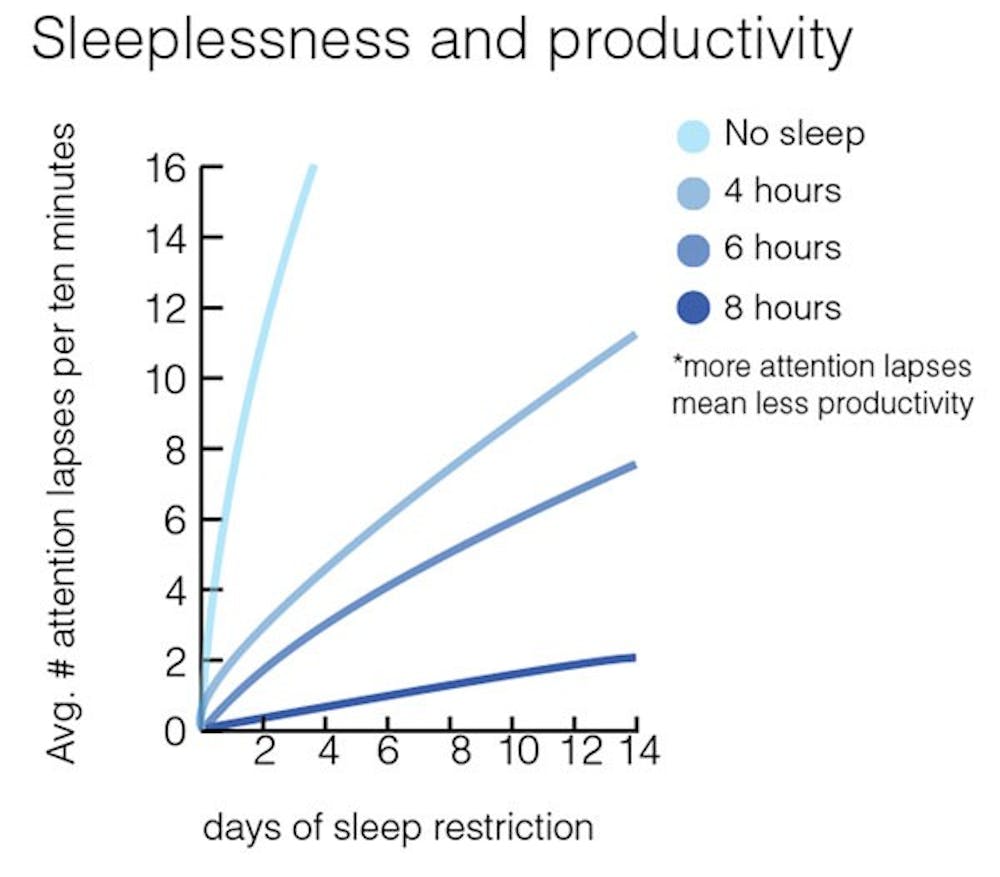What Psychology professor David Dinges spends his time studying, many Penn students put off or forgo altogether.
With the help of 50 to 70 Penn students, Dinges and his team examine the role of sleep in maintaining health and cognition, as well as the consequences of sleep deprivation.
According to Dinges, the average healthy person needs nine hours of sleep a night.
But like many other students, Nursing freshman Max Hess misses the mark nightly, blaming his “endless procrastination” for his lack of sleep.
Dinges explained that “if you present a student with 10 free hours, they will only sleep for half of them,” and will use the other half to socialize, study, do laundry or “make love,” among other things.
In studying recovery from sleep deprivation, Dinges has found that after five nights of only four hours of sleep, people need a 10-hour night of sleep to regain normal functioning capabilities.
Some students choose sleep over class to get their 10 hours. “I could sleep in my bed or I could sleep in class,” said an Engineering freshman who wished to remain anonymous, “and I would prefer not to be rude to the professor.”
He may be on to something. Dinges’ findings show that adequate sleep allows individuals to learn better. They find that sleep plays a significant role in memory conservation and concentration.
Though he and his team are currently running sleep experiments for NASA, as well as underwater tests, Dinges commends the environment at Penn that allows for his sleep studies.
To perform these studies, which last from 10 to 20 weeks, Dinges employs Penn students to take shifts keeping subjects awake and running assessments like the psychomotor vigilance test. This measurement records the response time for subjects to hit the space bar after seeing a light appear on a computer screen.
Dinges explained that after sleep deprivation, response time drastically suffers.
The findings from these tests explain why Dinges hopes students will avoid all-nighters — which are “extremely bad for your brain” — in the coming weeks of finals.
He said that students tend to “brag” about how little sleep they are getting, though there is nothing “cool” about putting yourself “at risk or in [sleep] deficit.”
He added that, in preparation for finals, coffee-drinking students should note that “caffeine is not a chemical substitute for sleep.”
Dinges’ findings have sparked his curiosity about the long-term effects of sleep deprivation. He described sleep as “recovery from brain use” and said that a lack of sleep causes drastic deficits in cognition, including a lessened ability to detect threats and a heightened probability of taking greater risks.
Dinges — who sticks to his own findings — said, “If you want to compete in this world,” and if you want to “win,” get your sleep.



